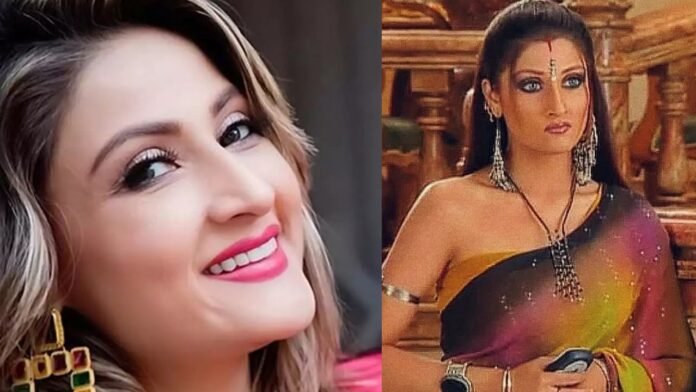Urvashi Dholakia recently opened up about her first period in the 1980s, recalling how her father’s approach stood out during a time when discussions about menstruation were largely avoided. The actor, best known for her role as Komolika in Kasautii Zindagii Kay, shared that her father was liberal enough to acknowledge the moment with immediate support. While many families hesitated to talk openly about menstruation, her father ran to the market to buy a packet of sanitary napkins as soon as she got her first period.
Dholakia described how the knowledge surrounding menstruation was limited in those days, and discussions were often shrouded in secrecy. Her mother had tried to prepare her by dropping hints a week before, but she never addressed the topic directly. In contrast, her father’s reaction showed a level of openness that was rare for the time. His willingness to acknowledge and act on the situation made a lasting impression on her, shaping how she viewed conversations about menstruation.
The actor also reflected on how societal norms have changed since then. While menstruation remained a taboo subject in many households in the past, today’s parents are making a conscious effort to normalize discussions around it. She revealed that she took a different approach with her own children, ensuring they were informed from an early age. She proudly stated that her sons, now grown, knew about sanitary napkins when they were just four years old. She never treated menstruation as a hidden or shameful topic in her household, making sure they understood it as a natural biological process.
Dholakia’s experience highlights the generational shift in attitudes toward menstruation. She acknowledged that growing up in a society where such topics were considered off-limits could create confusion and embarrassment for young girls. The lack of open conversations meant that many relied on whispers and incomplete information. In contrast, today’s generation has access to better education and resources, making it easier to navigate these experiences with confidence.
The actor’s candid revelation comes at a time when many public figures are using their platforms to break the stigma surrounding menstruation. By sharing her story, she hopes to encourage more families to embrace openness and transparency. She emphasized the importance of fathers playing an active role in these conversations, just as her own father did decades ago.
Dholakia also noted that cultural and regional differences still play a role in how menstruation is perceived. While progress has been made in urban areas, many rural communities still treat it as a topic to be spoken about in hushed tones. The lack of proper menstrual hygiene education in certain parts of the country continues to pose challenges, making it crucial for more conversations like these to take place.
The actor’s reflection on her past and her approach to raising her children demonstrates how far society has come in terms of menstrual awareness. However, she believes that there is still work to be done. She encouraged parents to be more open with their children, ensuring they grow up without shame or misinformation about menstruation.
Dholakia’s story resonated with many, as social media users praised her for speaking candidly about her experiences. Many appreciated her father’s progressive mindset at a time when such discussions were almost nonexistent in Indian households. Others commended her for breaking the cycle of secrecy by educating her sons at an early age.
By opening up about her personal experience, Dholakia has added to the growing movement of celebrities advocating for menstrual awareness. Her story serves as a reminder that small acts of understanding and support from family members can have a lasting impact on how individuals perceive and experience menstruation.
Dholakia also touched on how the secrecy surrounding menstruation in the past contributed to unnecessary fear and shame among young girls. She recalled how many of her peers were left to figure things out on their own because the topic was not discussed openly in schools or homes. She emphasized that a lack of clear communication often led to misinformation, making girls feel isolated during a significant biological change.
She acknowledged that while progress has been made, menstruation continues to be a subject of discomfort in certain spaces. She pointed out that despite increased awareness, many workplaces and public institutions still lack proper menstrual facilities, forcing women to navigate their cycles in silence. She stressed the need for better policies and infrastructure to support menstrual hygiene, particularly in schools and offices.
Dholakia also addressed the role of media in shaping societal attitudes toward menstruation. She observed that while advertisements have become more inclusive in discussing periods, they still often use coded language and euphemisms. She believes that normalizing direct and scientific discussions about menstruation in popular culture can help remove the stigma attached to it.
The actor hopes that sharing personal stories like hers will encourage more people to break the silence around menstruation. She called on parents, teachers, and public figures to contribute to these conversations so that future generations do not have to experience the same discomfort and secrecy. She believes that if more fathers, like hers, take an active role in discussing menstruation, it will help create a more supportive and informed environment for young girls.
Dholakia’s story is a reminder that change begins at home. Her father’s simple yet significant gesture set a precedent for how she approached conversations with her own children. She urged society to move beyond outdated notions and ensure that young girls today grow up with confidence and knowledge about their bodies. Her openness about her experience reinforces the importance of education, awareness, and supportive family dynamics in shaping a more progressive approach to menstruation.

